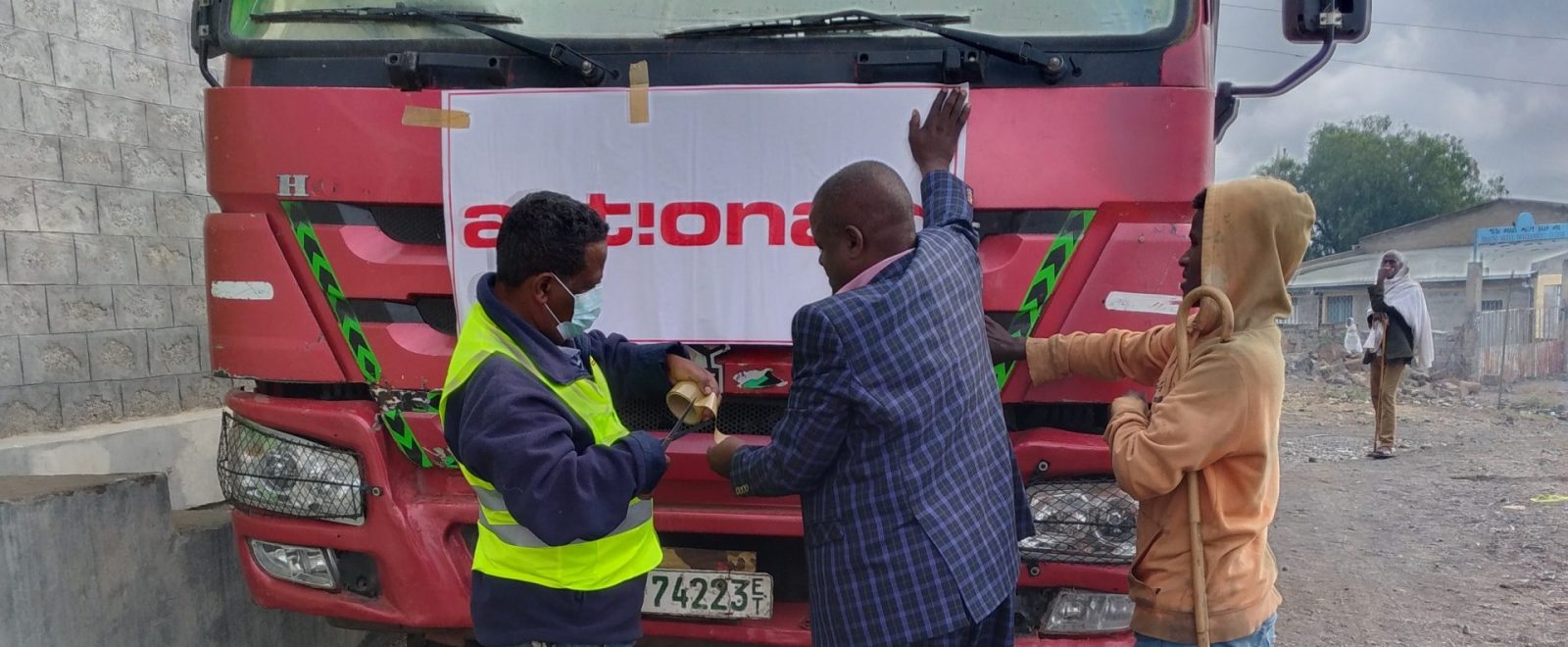Women are leading ActionAid’s emergency response in Ethiopia’s Tigray region where communities are facing severe food shortages, conflict and widespread violence against women and girls.
ActionAid Ethiopia is supporting people in Southern Tigray, where lives and livelihoods are being devastated by ongoing conflict, the climate crisis and desert locust swarms. So far, more than 18,000 people have received food support and dignity kits, including toiletries and hygiene products, for women and girls.
Tinebeb Berhane, Country Director of ActionAid Ethiopia says:
“Women and children are the most impacted by this crisis, with malnutrition rates for children soaring and women are facing widespread sexual and gender-based violence across the region.
“Women leaders trained as emergency responders by ActionAid are running protection programs to help combat the rising violence and provide safe spaces for women and girls.
“But there is an urgent need to scale up our response to support more women and girls, and communities facing a deepening hunger and humanitarian crisis.”
Conflict and violence are exacerbating already soaring levels of food insecurity due to flooding and locust swarms, fuelled by the climate crisis, which ravaged crops and farmland across Ethiopia, including Tigray, last year.
UN figures show there are 5.2 million people in the region – 90% of the population – in dire need of assistance.
It is hoped that the unilateral ceasefire announced by the Ethiopian government will allow the humanitarian response to be scaled up, particularly in areas where people are most vulnerable and experiencing rising food insecurity.
Ends.
For more information contact jess.midwinter@actionaid.org.
Notes to editors:
ActionAid is a global federation working for a world free from poverty and injustice. For more information visit https://actionaid.org/.
ActionAid Ethiopia has a 14-year presence in Tigray region, Southern Tigray zone, in Raya Azebo and adjacent districts that have been affected by the current crisis. Our deep-rooted presence in these communities has enabled us to continue working with impactful programs.


